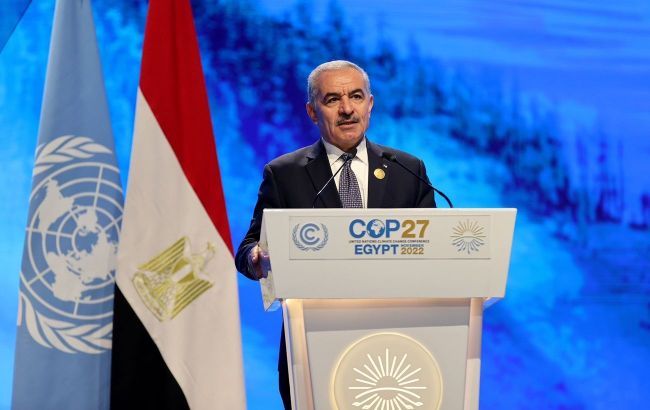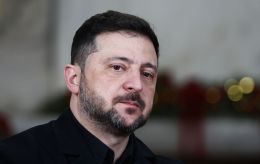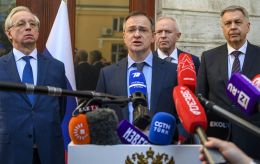PM of Palestinian Authority announced resignation of government: Reason revealed
 Photo: Prime Minister of the Palestinian Authority, Mohammad Shtayyeh (twitter.com/DrShtayyeh)
Photo: Prime Minister of the Palestinian Authority, Mohammad Shtayyeh (twitter.com/DrShtayyeh)
On Monday, February 26, Palestinian Prime Minister Mohammad Shtayyeh resigned, stating that it is a step towards fostering consensus among Palestinians regarding political agreements following the conflict with Hamas in Israel, reports Associated Press.
Mohammad Shtayyeh decided to step down due to pressure from the United States on Palestinian Authority President Mahmoud Abbas to initiate political reforms. Additionally, he noted that the decision to resign was made against the backdrop of escalation in the West Bank and Jerusalem, as well as the war, genocide, and famine in the Gaza Strip.
In his address to the cabinet, Shtayyeh emphasized the need to consider the new reality in Gaza after nearly five months of hostilities. He highlighted the necessity for new governmental and political changes, along with negotiations for national unity. This would require the extension of the Authority's power over the entire territory of Palestine.
It is expected that President Abbas will appoint the head of the Palestinian Investment Fund, Mohammad Mustafa, as the next prime minister. Mustafa, an economist with an American education, has experience working at the World Bank and in other positions within the Palestinian Authority, according to the report.
About the Palestinian Authority
The Palestinian Authority was established 30 years ago based on temporary peace agreements in Oslo. It controls limited portions of the occupied West Bank of the Jordan River, but lost control in the Gaza Strip after a conflict with HAMAS in 2007.
Comment of HAMAS
A representative of the terrorist organization HAMAS, Sami Abu Zuhri, noted that the resignation of the Shtayyeh government would only make sense if it occurs in the context of a national consensus on agreements for the next stage.
The UN Secretary-General Antonio Guterres expressed regret over the UN Security Council's response to Russia's invasion of Ukraine and the conflict between HAMAS and Israel in the Gaza Strip. During his speech at the opening of the UN Human Rights Council session in Geneva, Guterres expressed concern that the UN Security Council often finds itself in a deadlock and is unable to act on the most crucial issues of peace and security in the modern world.
The Secretary-General emphasized that the lack of unity in the Security Council may have fatally undermined the organization's authority. He underscored the need for a serious overhaul of the composition and methods of operation of the body.

